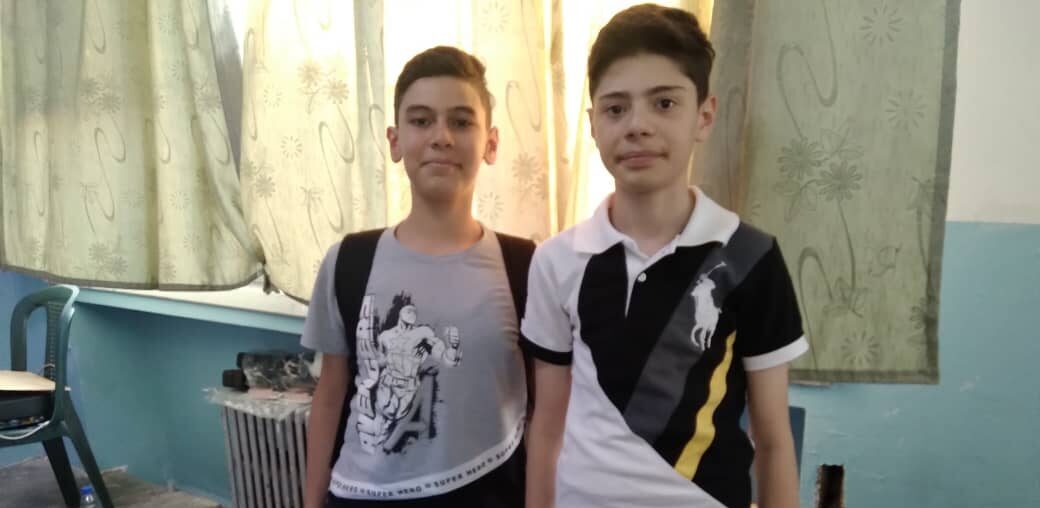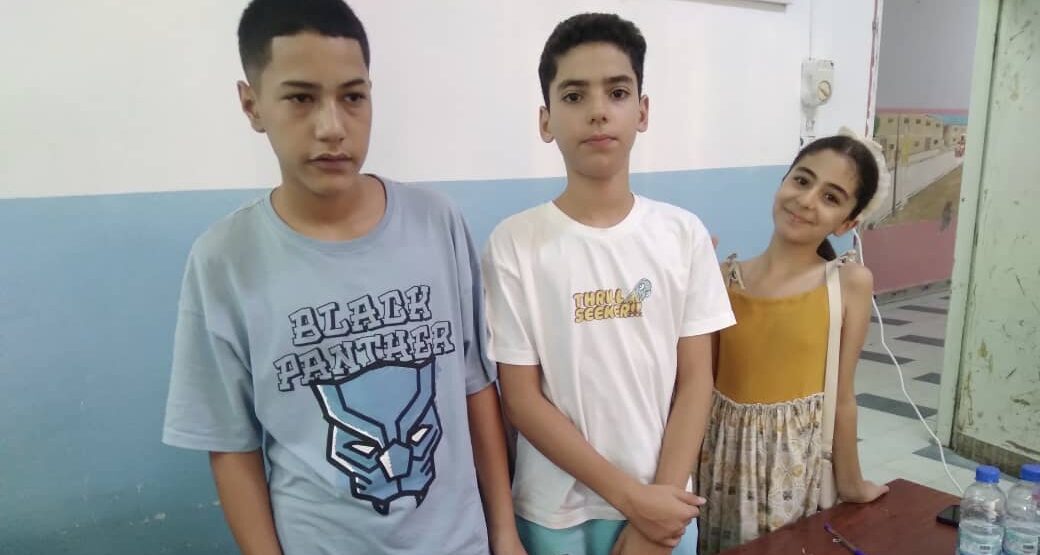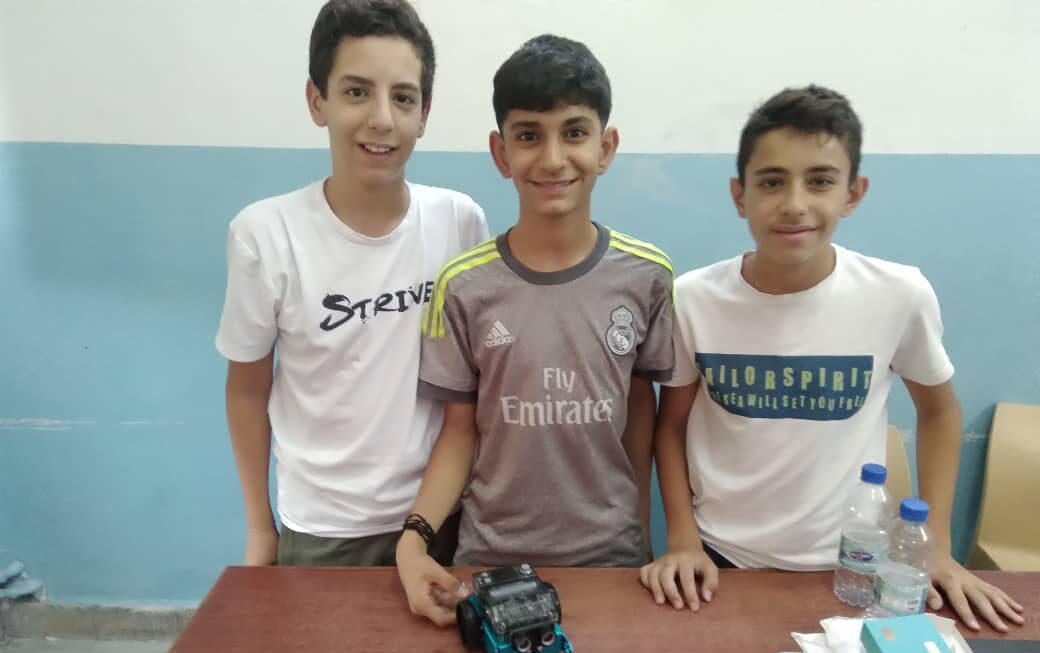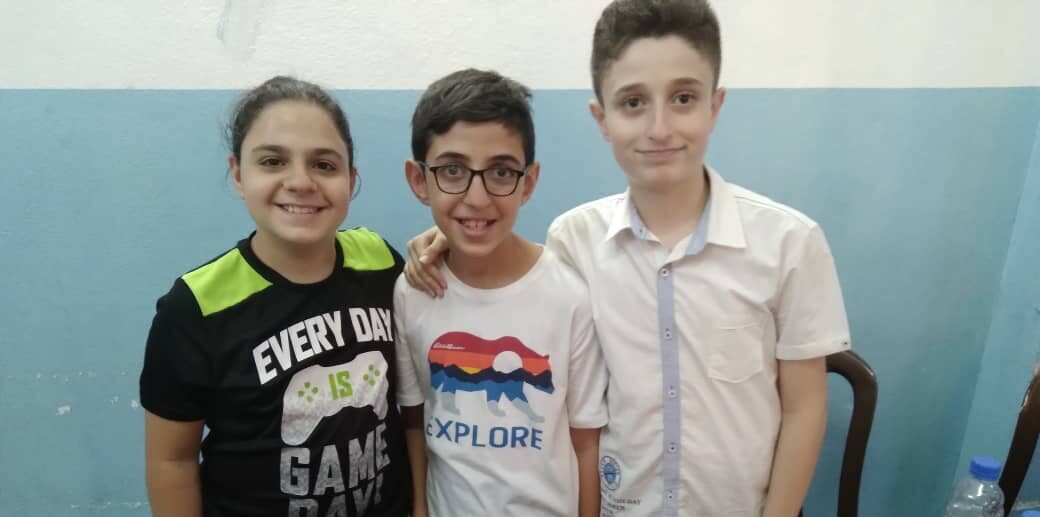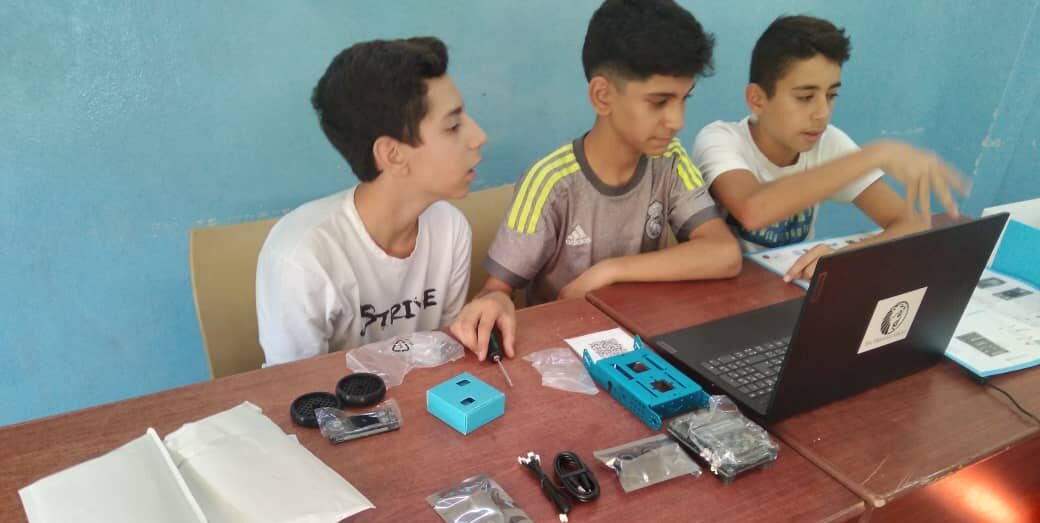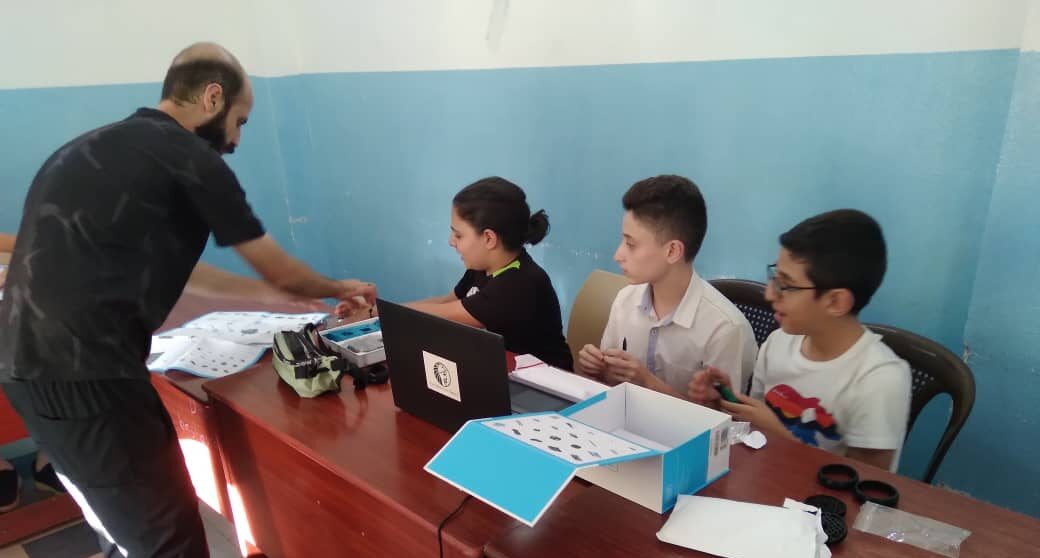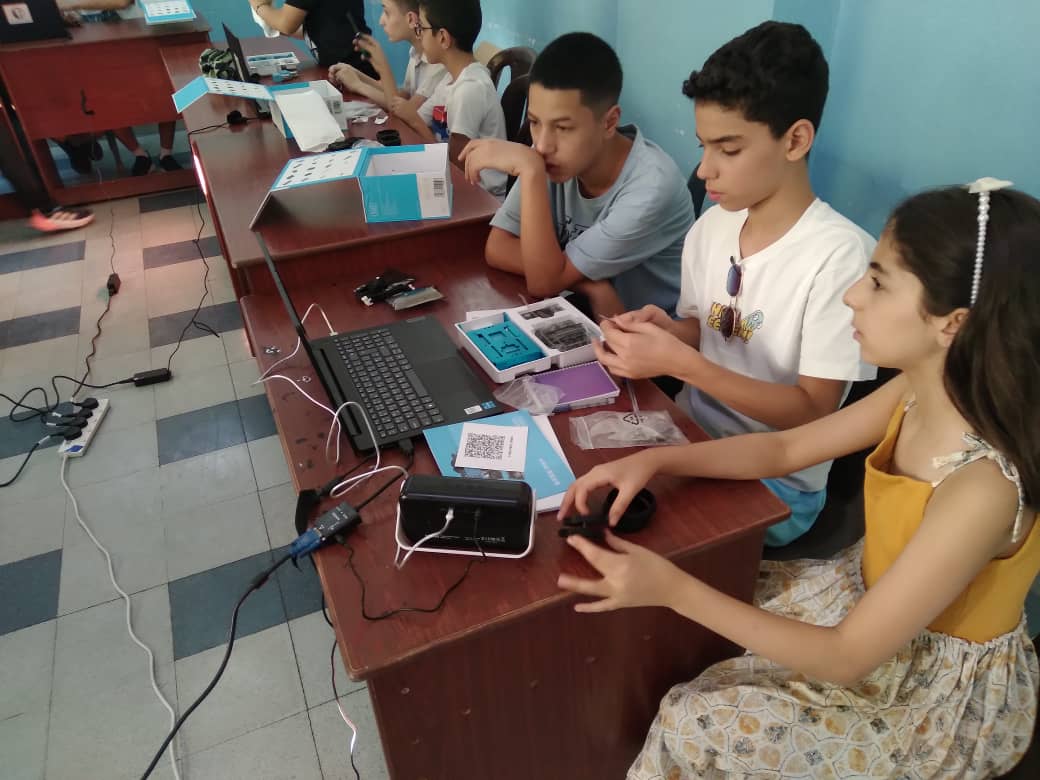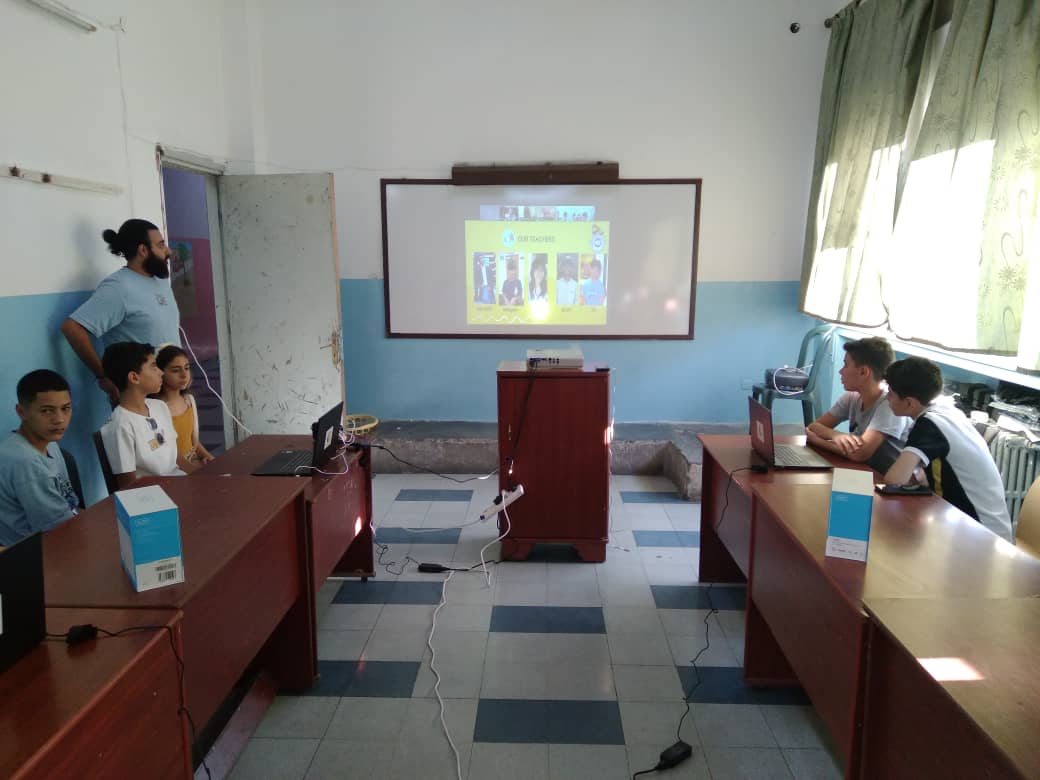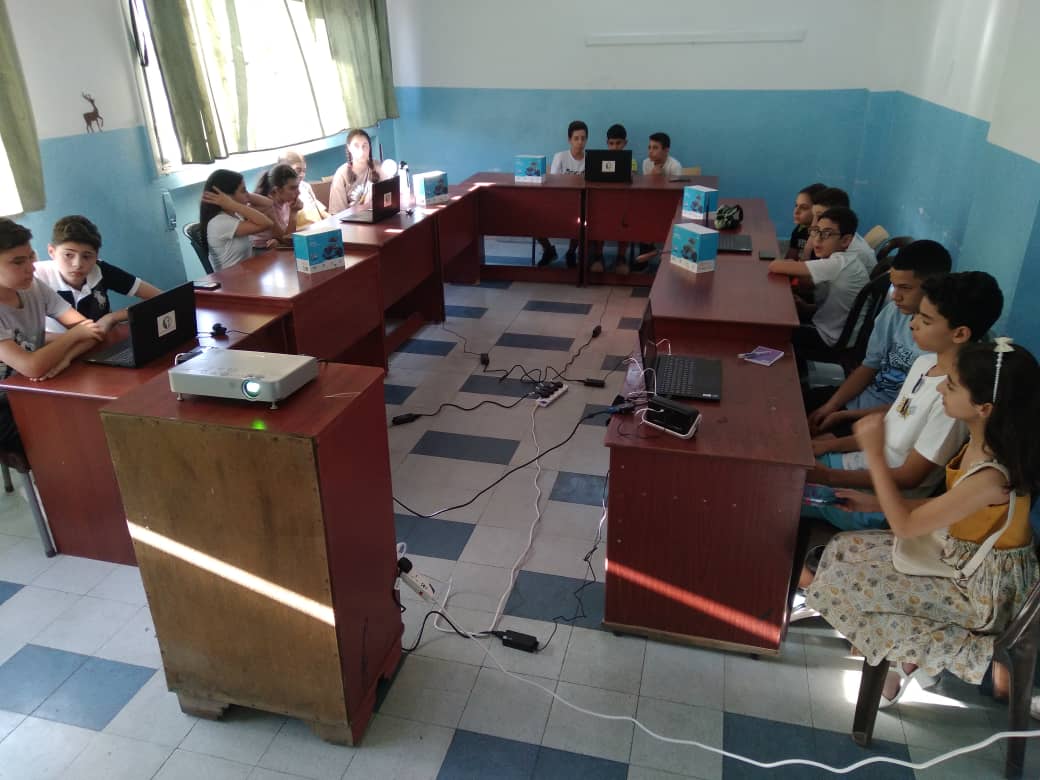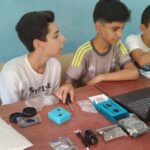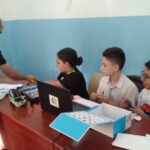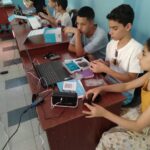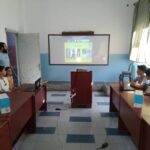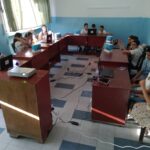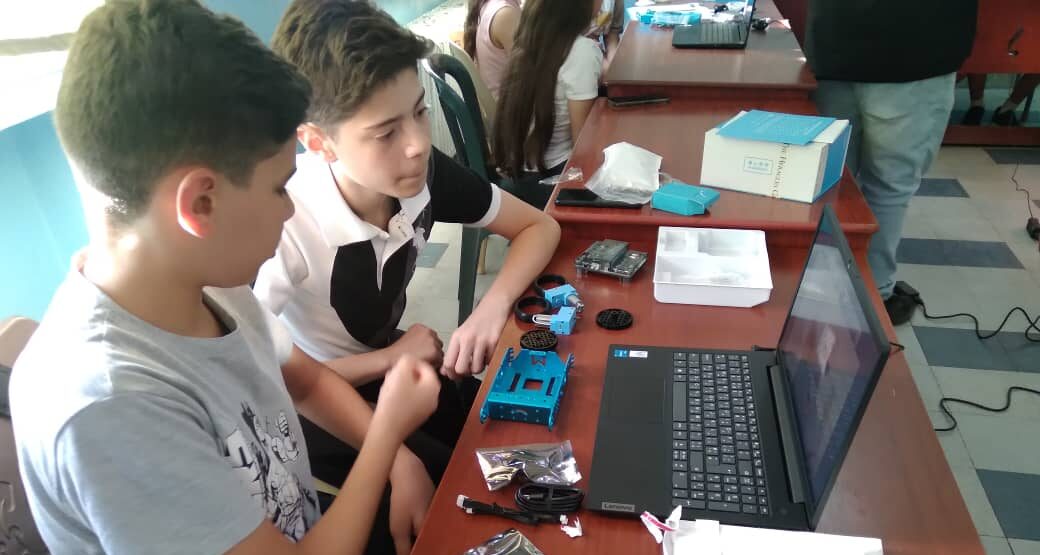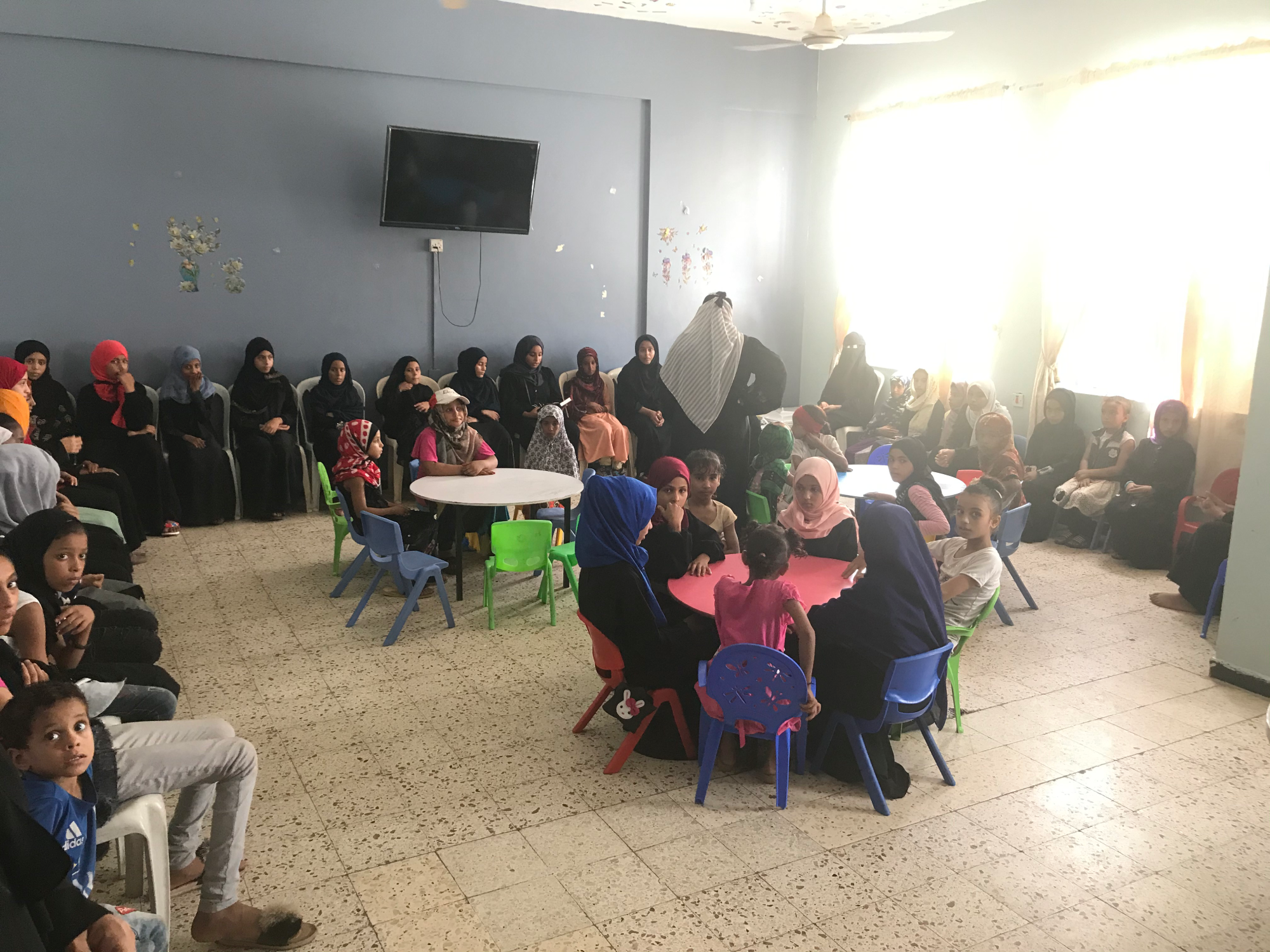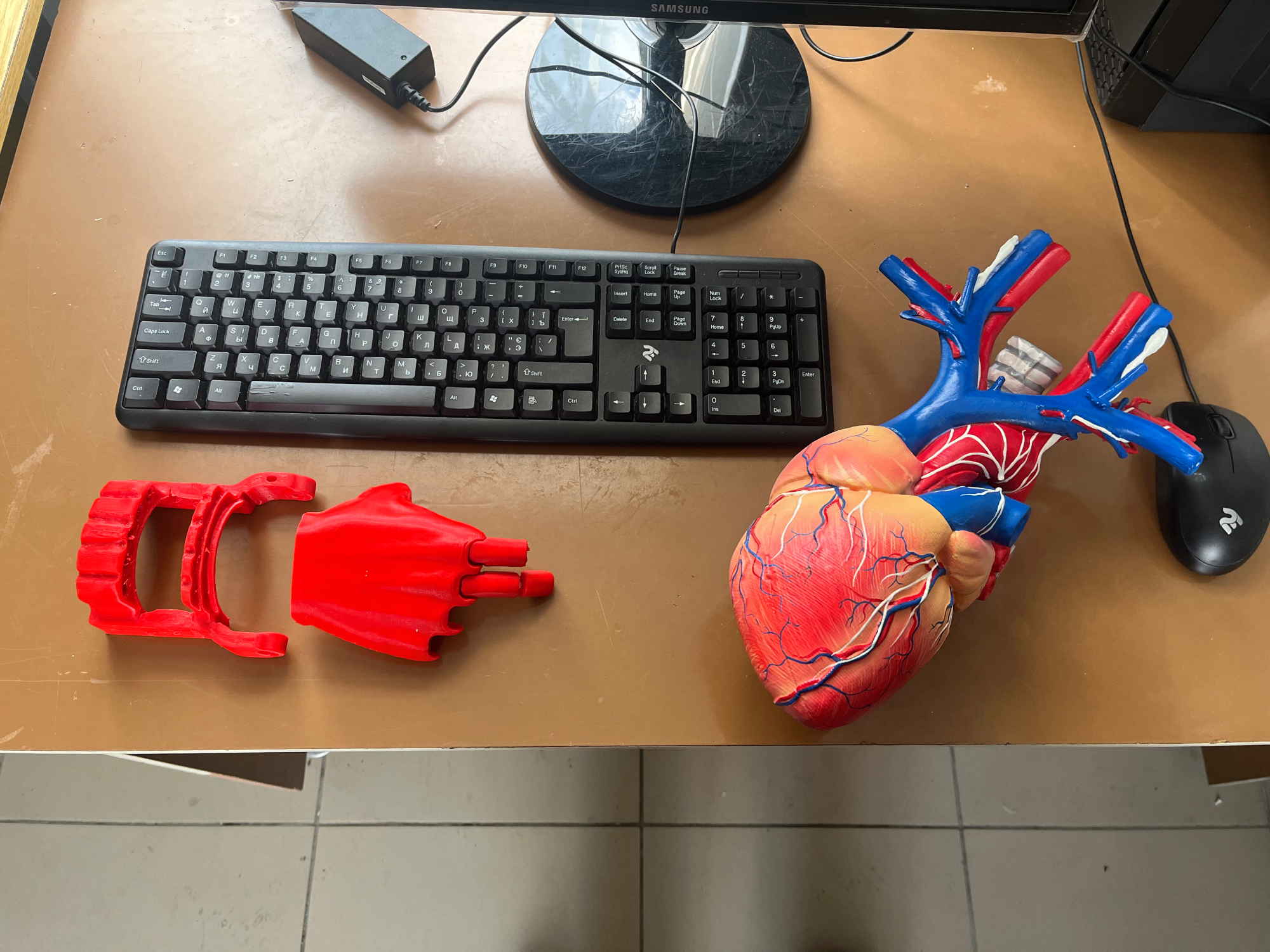Project Overview
In Damascus, a groundbreaking pilot program is giving 15 young students their first hands-on experience with robotics. The initiative is run in partnership with FTC Robotics team 47 Beavers Robotics, a Maryland, U.S.–based middle and high school robotics team with a mission to promote access and opportunities in science and technology to youngsters through life-changing youth robotics programs that build skills, confidence, and resilience. The program brings together American volunteer instructors and Syrian youth to explore programming, sensors, and robot design.
This cross-cultural effort is more than a class—it’s a bridge. Students not only build robots but also form friendships across borders, discovering that technology is a universal language that can spark creativity, problem-solving, and hope.
The problem
Many children in Damascus spend long hours in the streets due to prolonged electricity cuts and a shortage of structured educational activities. Without access to stimulating programs, they miss opportunities to develop critical thinking, problem-solving, and creative skills that are essential for their future.
Our Solution
We launched a robotics classes that give children a safe, inspiring space to learn and explore. With the guidance of 42 Beavers Robotics and dedicated volunteer instructors, 15 Syrian students were provided with transportation, a prepared classroom, laptops, robots, and a translator.
Working in small teams, they learned to program robots, integrate sensors, and design creative solutions—while engaging in live sessions with peers in the U.S. The program shows them that no idea is fixed, every problem can be broken down, and solutions are within reach.
Impact: “From Curious Minds to Future Engineers.”
Mindset Shift: Students learned to break down complex challenges into manageable steps and believe that solutions are possible.
- Language Skills: Exposure to U.S. English during classes encouraged students to attempt direct communication before relying on the translator.
- Pilot Cohort Success: All 15 students completed the first robotics course.
- Family Pride: Parents reported increased confidence in their children’s abilities and problem-solving mindset.
- Mindset Shift: Students learned to break down complex challenges into manageable steps and believe that solutions are possible.
Funding Status & Call for Support
- One micro-robotics lab is now fully equipped and operational. The pilot has proven that with the right tools, mentorship, and connectivity, Syrian children can develop skills on par with their global peers.
- We are seeking partners, donors, and sponsors to expand the program to more cities, and neighboring countries and conflict areas, train local instructors, and provide ongoing resources so these young innovators can continue building, experimenting, and dreaming.
Future Needs — “Scaling Syria, Leaving No One Behind.”
- City-by-City Expansion: Establish micro-robotics labs in 7 more hubs (Aleppo, Hama, Homs, Damascus, Daraa, Tartous, Deir ez-Zor) to bring STEM learning within reach of thousands more students.
- Equipment Growth: Add 70 laptops, 60 robotics kits, and stable backup power systems to support uninterrupted learning despite power cuts.
- Local Instructor Training: Certify 30 Syrian educators in robotics, coding, and hands-on STEM teaching methods.
- Connectivity Boost: Provide mobile hotspots and backup internet to ensure real-time collaboration with global mentors.
- Student Innovation Fund: Seed a $250K annual fund to support student-led robotics projects, competitions, and exhibitions.
- Sustainable Supply Chain: Partner locally to source and maintain robotics parts, reducing downtime and dependence on imports.

